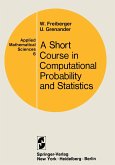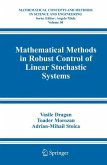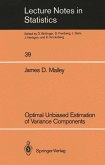Like many other scientists, I have long been interested in history. I enjoy reading about the minutiae of its daily unfolding: the coinage, food, clothes, games, literature and habits which characterize a people. I am carried away by the broad sweep of its major events: the wars, famines, migrations, reforms, political swings and scientific advances which shape a society. I know that historians value autobiographical accounts as part of the basic material from which the stuff of history is distilled; this should apply no less to statistical than to political or social history. Modem statistics is a relatively young science; it was while pondering this fact sometime in 1980 that I realized that many of the pioneers of our field could still be called upon to tell their stories. If, however, biographical material about these eminent statisticians was not gathered, then one might lose the chance to gain insight into the origins of many an important statistical development. The remarkable experience of these colleagues could not be readily duplicated. Fired by these thoughts, I took it upon myself to plan the framework of this book. In it, eminent statisticians (probabilists are included under this title) would be invited to sketch their lives, explain how they had become interested in probability and· statistics, give an account of their major contributions, and possibly hazard some predictions about the future of the subject.








